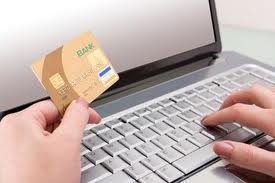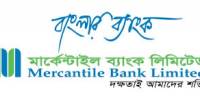E- Banking products and services in Bangladesh
E-Banking products and services can include wholesale products for corporate customers as well as retail and fiduciary products for individual customers. Ultimately, the products and services obtained through internet banking may mirror products and services offered through other bank delivery channels. A brief description of retail and wholesale products and services is given below:
Automated Teller Machine (ATM):
An automated teller machine or automatic teller machine (ATM), also known as an automated banking machine (ABM), cash machine is a computerized telecommunications device that provides the clients of a financial institution with access to financial transactions in a public space without the need for a cashier, human clerk or bank teller. ATMs are known by various other names including ATM machine, automated banking machine, and various regional variants derived from trademarks on ATM systems held by particular banks.
On most modern ATMs, the customer is identified by inserting a plastic ATM card with a magnetic stripe or a plastic smart card with a chip that contains a unique card number and some security information such as an expiration date or CVVC (CVV). Authentication is provided by the customer entering a personal identification number (PIN).
Using an ATM, customers can access their bank accounts in order to make cash withdrawals, debit card cash advances, and check their account balances as well as purchase prepaid cell phone credit. If the currency being withdrawn from the ATM is different from that which the bank account is denominated in the money will be converted at an official wholesale exchange rate . Thus, ATMs often provide one of the best possible official exchange rates for foreign travelers, and are also widely used for this purpose
Debit Card:
A debit card is a plastic card which provides an alternative payment method to cash while making purchases. The amount of a transaction is typically displayed on a card reader, after which the customer swipes the card then enters their PIN number (an attendant must swipe gift cards at gas stations). There is usually a short delay while the EFTPOS (Electronic Funds Transfer at Point of Sale) terminal contacts with the computer network (over a phone line or mobile connection) to verify’ and authorize the transaction.
Credit Card:
A credit card is a system of payment named after the small plastic card issued to users of the system .A card issued by a financial company giving the holder an option to borrow funds, usually at point of sale. Credit cards charge interest and are primarily used for short-term financing. Interest usually begins one month after a purchase is made and borrowing limits are pre-set according to the individual’s credit rating. http://www.investopedia.com. A credit card is different from a debit card in that it does not remove money from the user’s account after every transaction. In the case of credit cards, the issuer lends money to the consumer (or the user). It is also different from a charge card (though this name is sometimes used by the public to describe credit cards), which requires the balance to be paid in full each month. In contrast, a credit card allows the consumer to ‘revolve’ their balance, at the cost of having interest charged.
Point of sale (POS):
POS is an abbreviation for point of sale (or point-of-sale, or point of service).
This can mean a retail shop, a checkout counter in a shop, or a variable location where a transaction occurs in this type of environment. Additionally, point of sale sometimes refers to the electronic cash register system being used in an establishment. Point of sale systems are used in restaurants, hotels, stadiums, casinos, as well as retail environments in short, if something can be sold, it can be sold where a point of sale system is in use.
Check Truncation:
Check truncation is such a service in which a financial institution does not return the rejected checks with the monthly statement to their customers, rather they provide statement of rejected checks with the monthly statement. The banks store the rejected checks for a certain period (usually 90 days). During this time period, a customer can adjust/rectify his account if any imbalance is found between his own records and the bank statement provided by bank. After the expiration of this stipulated period, the rejected checks are spoiled and the bank maintains a micro film copy for a period.
Home Banking:
At first, banks introduced Telephone Bill Payment (TBP) system so that customers could be able to do their banking activities from their home. The next version of home banking was Video Home Banking (VHB). The internet is expected to be a major factor in home banking.
Retail Automated Clearing House Service:
The Automated Clearing House (ACH) is an electronic network for financial transactions. ACH processes large volumes of both credit and debit transactions which are originated in batches. ACH credit transfers include direct-deposit payroll payments and payments to contractors and vendors. ACH debit transfers include consumer payments on insurance premiums, mortgage loans, and other kinds of bills. Businesses are also increasingly using ACH to collect from customers’ online, rather than accepting credit or debit cards.
Wire Transfer:
Wire transfer is a process which ensures fast and appropriate timing of fund transfer from the sender to the recipient. This kind of transfer of money could be either within the country or abroad. Funds are transferred under the following network:
i. Fed wire (The Federal Reserve Communication System)
ii. Bank wire
iii. CHIPS (The Clearing House Inter-bank Payment Service)
iv. SWIFT (The Society for World Wide Inter-bank Financial Telecommunication)
Corporate Automated Clearing House:
The Automated Clearing House (ACH) is an electronic network for financial transactions. ACH processes large volumes of both credit and debit transactions which are originated in batches. Other retail and fiduciary products and services may include Balance inquiry, Funds transfer, Downloading transaction information, Bill presentment and payment, Loan application, Investment activity and other value-added services.
















